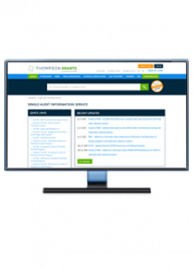Sneak Preview: Panel Gives Senators Suggestions To Limit Fraud for New Emergencies

(The following was excerpted from a recent Thompson Grants Compliance Expert article.) A panel of officials from federal watchdog agencies, in addressing instances of fraudulent uses of COVID-19 relief allocations, recently offered suggestions to a Senate subcommittee that could help limit instances of fraud and improper payments during a future national emergency where funds must be quickly disbursed to affected recipients and beneficiaries.
Rebecca Shea, director of forensic audits and investigative services for the Government Accountability Office (GAO), told the Senate Committee on Homeland Security and Government Affairs’ Subcommittee on Emerging Threats and Spending Oversight about actions that could be taken to improve payment integrity. First, she encouraged Congress to reinstate agency antifraud reporting requirements in their annual financial reports, to better prepare them for potential emergencies, a recommendation GAO made in its report to Congress in March 2022 (see “Congress Told That Agencies Must Improve Controls,” May 2022).
The Fraud Reduction and Data Analytics Act of 2015 and the Payment Integrity Information Act of 2019 required agencies to report on their antifraud controls and fraud risk management efforts in their annual financial reports. These antifraud reporting requirements sunset in 2020.
If agencies had “been better prepared, [had] dedicated entities for fraud risk management, assessed fraud risks, identified data sets and got them in place and addressed interoperability issues prior to the emergency, they would’ve been better able to pivot when they had to [manage the COVID-relief] programs,” she said. “Reinstating [antifraud reporting] requirements would improve transparency and oversight not only for inspectors general (OIGs) and GAO, but also for Congress.”
Fellow panelist Mike Ware, inspector general for the Small Business Administration (SBA), agreed with this suggestion, adding that the consideration of internal controls needs to be a “primary ingredient” when Congress develops emergency funding legislation. “The controls that normally would’ve been in place were gutted and removed from the onset, so many of the control mechanisms … simply were not there,” he explained. “Another [suggestion to limit fraud] is ensuring that we have the ability to share government data across agencies. Although I understand privacy concerns, [the shared data] could be used for key reasons at key times. They would have helped at the beginning so that we’re not in the pay-and-chase model that we are in currently, and we could catch wrongdoers more quickly if we could share that information.”
(The full version of this story has now been made available to all for a limited time here.)
Join us for our following Thompson Grants event:
Federal Grants Forum | Dec. 6-8, 2023 | San Juan, P.R.



